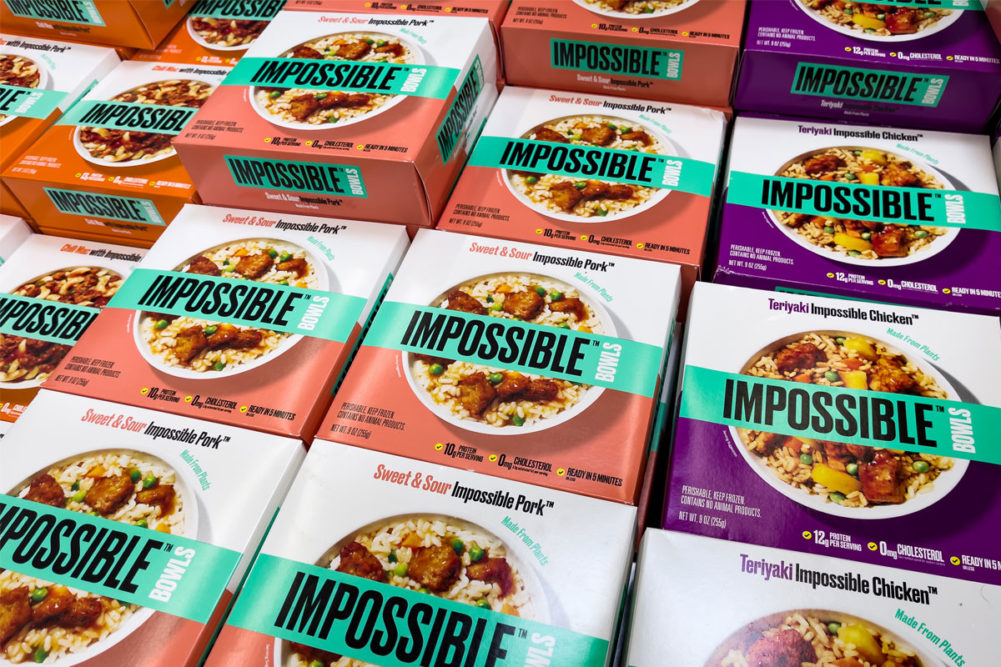DENVER — The plant-based meat alternative market will need to expand, diversify and solidify its target audience in order to steady itself, according to a new report from the financial service provider CoBank.
Following a peak in 2020, CoBank found plant-based meat sales have continued to decline since 2021, citing recent data from Circana that showed a nearly 21% decrease in volume sales for the 52-week period ending on July 2, 2023. Investments in the category also have slowed, along with all alternative proteins, falling 41% for plant-based meat, seafood, eggs and dairy companies in 2022.
Billy Roberts, senior food and beverage economist at CoBank and author of the report, pointed to the high prices of plant-based meats as one reason behind the decrease in sales. With inflationary pressures forcing consumers to stretch every dollar, the higher price tags for plant protein have become an easy cost-cutting target.
“Inflation plays a pronounced role in declining sales of plant-based meats,” Roberts said. “Consumers generally gravitate toward familiar foods during times of economic uncertainty, presenting a sizable hurdle.”
The higher price points have resulted in the plant-based market being primarily limited to higher-income consumers and capped household penetration at roughly 10%. Price parity with conventional meats also continues to be an issue as plant-based meats tend to be several dollars more expensive per pound, according to the report.
Additional difficulties come from issues with the taste, texture and quality of plant-based meat. Research from 84.51° and the Plant Based Food Association identified the factors as “primary pain points” for consumers, and more recent data from the Food Quality and Preference journal showed mouthfeel and flavor were persistent issues even among staunch plant-based consumers.
Marcel Goldenberg, chief market reporting officer for Mintec Ltd., suggested some of the negative perceptions surrounding taste and texture may be the result of retailers stocking lower-quality plant-based products in response to initially high demand.
“There’s so much on the shelf because every retailer thinks, ‘Oh my goodness this is the next big thing, we need to push this,’” Goldenberg said. “They just signed off every product that was being pitched to them and it actually didn’t taste that good. The flexitarians went and bought it, and they don’t come back to buy it again.”
Some of the decline also may be fueled by changes in consumers’ motivations for purchasing plant-based meat. The novelty that initially drove some consumer trial has likely waned, with Mintel reporting that less than half of Americans that tried plant-based meats made subsequent purchases.
Additionally, many consumers sought plant-based meats for perceived health benefits, but unfamiliar and complex ingredient labels have led to skepticism. As a result, health-conscious buyers may have shifted away from the category which is perceived as highly processed.
Seeking category stabilization
In order to stabilize the category, manufacturers will need to confront many of these difficulties. Some factors, particularly price and quality, may be alleviated through technological improvements and scaled-up production capabilities.
“Companies can address cost issues by building greater economies of scale and minimizing supply chain and freight expenses,” Roberts said. “Innovation around taste, texture and mouthfeel will be essential to capture more mass-market consumers.”
Quality concerns may also be remedied with clean label offerings that appeal to the interest for heathier plant-based products. Alternatively, some companies are choosing to forgo health benefits branding in favor of sustainability messaging.
Plant-based manufacturers also need to create new appeals for untapped consumer demographics. The report identified urban residents and younger consumers as particularly receptive to plant-based meat alternatives, citing research from foodservice company Sodexo that showed 81% of college students will choose plant-based options when they are the default menu option. Flexitarians also represent a significant opportunity for alternative meat makers to expand their customer base, according to Roberts.
“Many consumers no longer strictly follow a specific diet, such as paleo or vegetarian,” he said. “This suggests opportunity for brands to position plant-based products to non-vegetarian demographics, which widens the potential audience considerably.
“Lower price points and quality improvements in the category will resonate with the considerable portion of consumers interested in a more flexitarian approach to eating, whether due to climate concerns or an interest in health. These consumers will not abandon animal-based meats entirely but augment their diets with plant-based options.”
New formats for plant-based meat also may lead to a higher consumer conversion rate. While refrigerated and frozen meat alternatives, which account for 97% of the category, saw declining sales throughout 2022, shelf-stable offerings saw a significant increase in sales. The category generated approximately $40 million in sales in 2022, nearly doubling its sales from 2021.


